Entrepreneurs are survivors – and that includes this year’s inaugural class of Fire Awards winners.
The Fire Awards are Inno’s premier recognition for the companies and people setting the local innovation economy ablaze – even in light of unpredictable challenges. From a startup trying to expand economic equity to minority businesses to another trying to arm everyone with the tools they need in court, this year’s startups are a diverse bunch – all pushing ahead in an uncertain time.
Rising interest rates, inflation and belt-tightening are just some of the challenges they and others in the innovation economy face. It’s a scary world for startups – and getting scarier as recessionary fears escalate.
Mark Vitner, senior economist at Wells Fargo (NYSE: WFC), said there’s no such thing as a “mild recession,” and that in the Triangle, tech firms could feel some pain. Companies – startups included – will need to lean up in the months ahead.
“That means cutting expenses,” he said. In the tech sector, where stock prices have been hammered, secondary offerings will be difficult on the public market. And venture capitalists will be doing some belt tightening.
“They’re having to conserve capital,” he said of tech firms. “The tech sector is probably where we’re seeing more of the immediate impact on employment.”
Mitch Mumma, co-founder of Durham venture capital firm Intersouth Partners, said the environment could be challenging for late-stage startups looking for exits.
“Later-stage companies are going to have a more difficult time exiting because now all the trading companies are worth 25 percent less,” he said.
But there is a silver lining in a recession for the entrepreneurship ecosystem as a whole. The strong survive. And companies that don’t? Displaced employees may use their newfound unemployment as the final push they needed to start their own companies. This year’s inaugural Fire Awards recipients aren’t shying away from the challenges that 2022 may bring – and are pushing forward, one milestone at a time.
Fintech: LoanWell
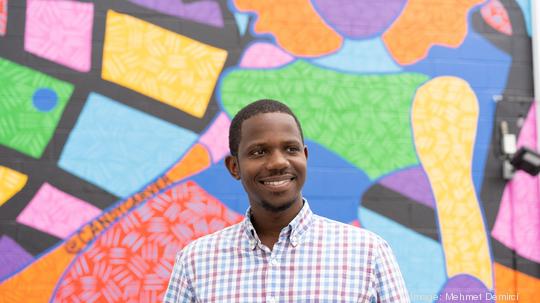
Founders: Bernard Worthy and Justin Straight
Address: 212 West Main St., Suite 303, Durham
Employees: 18
Money raised: $3.1 million
The Durham fintech, the brainchild of co-founders Bernard Worthy and Justin Straight, is trying to make an impact – one small loan at a time.
LoanWell aims to reimagine loan origination. The firm is building what it calls the “Squarespace for Lenders.” The goal is to help facilitate lending to underrepresented entrepreneurs. To do it, Loanwell works with community lenders such as Community Development Financial Institutions and credit unions.
The firm, launched in 2017, helps make the cost of the loan reasonable so that it makes business sense to do a small loan. The system it offers allows lenders and applicants to log into the same platform, which takes loans from application through servicing, automating the entire process. It reduces underwriting costs and allows lenders to close loans faster. The firm also uses data outside of just a credit score, allowing for more equitable access to capital.
Last year alone it pumped more than 4,000 loans and grants into the microlending market. That’s $138 million, and 91 percent of the loans were less than $100,000.
Community: MemberHub
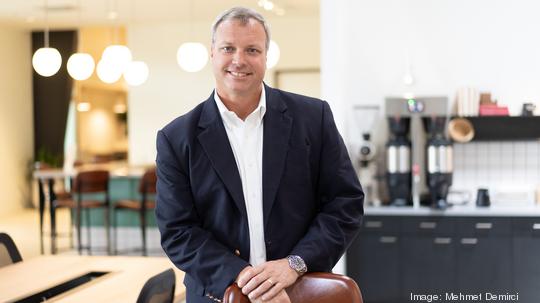
Founders: Loren Harrell and Matt Harrell
Address: 3041 Farrington Road, Raleigh
Employees: 28
Money raised: $7.7 million
The Raleigh company, which recently raised more than $3 million in equity, actually saw a boost from the pandemic, as the remote working trend pushed key customers online, CEO Will Bowen says.
Bowen has described MemberHub's technology as giving community-based nonprofits a way to “do more with less.” The company started offering its software for free in 2018, allowing nonprofits such as school PTAs to access digital solutions such as online fundraising. When the pandemic took companies across the globe virtual, the need for a nonprofit to be able to raise cash digitally became even more critical – and MemberHub delivered, offering services such as online auctions and raffles.
The firm has worked with 13,000 nonprofits in 50 states.
Community: The Diversity Movement
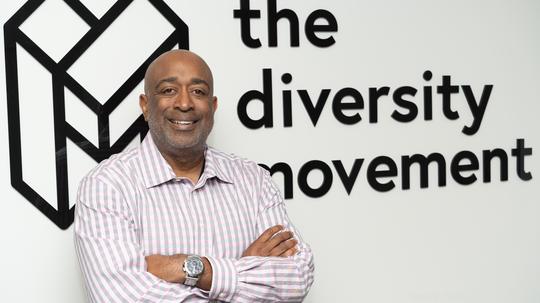
Founders: Donald Thompson, Jackie Ferguson, Kurt Merriweather and Kaela Sosa
Address: 4801 Glenwood Ave., Suite 500, Raleigh
Employees: 21
Money raised: $85,000
The firm, which began in 2019 with five co-founders from marketing company Walk West, is led by diversity advocate Donald Thompson. What started as a trial for a single e-learning course focused on inclusion and bottom-line results became a full-service DEI consultancy that by 2021 had a portfolio of more than 50 clients.
The firm describes itself as helping companies of all sizes “take the next step towards being diversity champions.” That could mean group training sessions, as well as consulting with leaders on how to move their diversity initiatives forward. The firm offers interactive online and in-person programs intended to foster an inclusive workplace. It also helps leaders obtain credentials to further their DEI expertise. And in the consulting arena, it helps clients create roadmaps to “weave DEI into their DNA."
Early stage: Blue Recruit
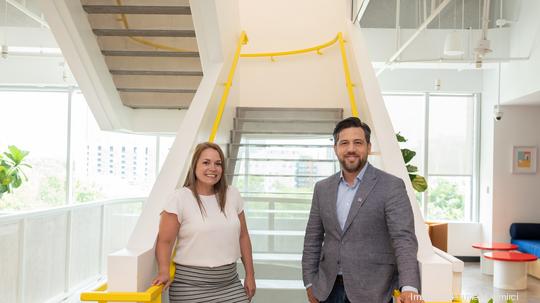
Founder: Rich Camacho
Address: 1 Glenwood Ave., Raleigh
Employees: 5 full-time
Money raised: $725,000
Blue Recruit matches skilled blue-collar workers to hiring companies.
Blue Recruit is led by U.S. Army veteran CEO Rich Camacho. After the Army, he started recruiting veterans for their own post-service careers. His clients kept asking if he knew how to find skilled tradespeople and, after several queries, the inspiration struck.
“It was time for a better way to source blue-collar talent,” the website reads.
So he left a corporate job to start the company with his wife, Gina.
Today, its partners include firms such as Zillow and Little Giant Ladder Systems.
Life sciences: Locus Biosciences
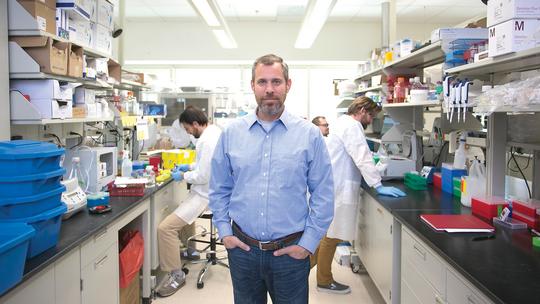
Founders: Paul Garofolo, Dave Ousterout, Rodolphe Barrangou, Charles Gersbach and Chase Beisel
Address: 523 Davis Drive, Suite 350, Morrisville
Employees: 98
Money raised: $93.7 million
The Morrisville biotech has been on a tear, recently adding $35 million to its coffers as it advances clinical development. The firm, which has annual revenue in the $30 million range, is led by co-founder and CEO Paul Garofolo.
Its lead drug candidate, LBP-EC01, is a medicine targeting E. coli bacteria that cause recurrent urinary tract infections. The firm is developing the treatment with the help of a $144 million program through the Biomedical Advanced Research and Development Authority, an office of the U.S. Department of Health and Human Services.
Its CEO has openly talked about the possibilities of growing through a merger or acquisition, saying recently that its recent funding “really backstops our growth and gives us a bit of buying power."
Early stage: TrakID
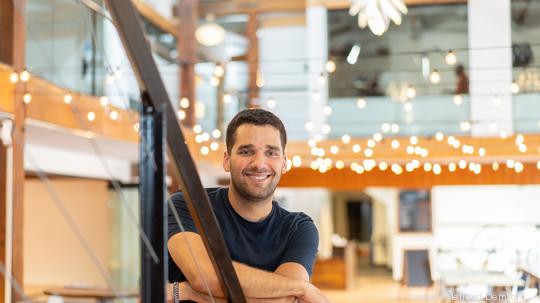
Founder: Brandon Kashani
Address: 310 S. Harrington St., Raleigh
Employees: 12 full-time and 3 part-time
Money raised: $3.3 million
The firm, led by CEO Brandon Kashani, allows kids to become “heroic explorers” as they trek through zoos and amusement parks. TrakID designs interactive adventures for children, with a goal of enhancing their experience and educating families about conservation.
The kid-directed Explorer Quest app has launched at multiple attractions across the country, from ZooTampa to the Philadelphia Zoo. Its devices – typically available for rental – consist of a “Smart Compass” bracelet. Kids wear the bracelet and then navigate to destinations chosen by their parents via a corresponding smartphone app. At a zoo, the bracelet will vibrate when an animal is nearby. Upon approaching the animal, parents will be shown facts about the exhibit which they can share with their child.
TrakID was initially conceived as a child tracking device for parents, but the idea evolved over the years.
Growth stage: Courtroom5
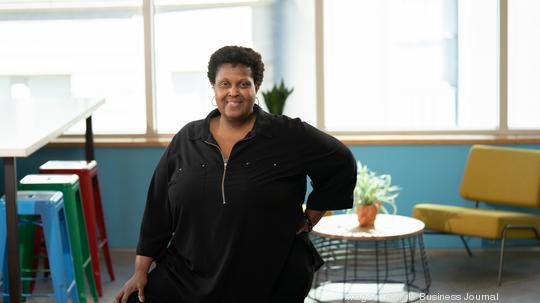
Founders: Sonja Ebron and Debra Ebron
Address: 2608 Erwin Road, Suite 148-113 Durham
Employees: 8
Money raised: $495,000
The Durham startup started out of the frustration of its co-founder, Sonja Ebron, who found herself in court without a lawyer. The complexities of the legal system were so frustrating that she and Debra Slone cofounded Courtroom5 to make justice accessible. Since Courtroom5 went live in April 2017, thousands of people have been served by the online legal aid resource, which provides educational information and technical documents that enable individuals to represent themselves in court.
“In societies where access to justice doesn’t exist, you really ultimately have a problem with your democracy,” Ebron has said. The average cost of lawyers in the U.S at about $300 an hour. A typical case has a lawyer spending 200 hours or more representing you.
It adds up, but by educating yourself through Courtroom5, you can reduce those billable hours – or even eliminate them, depending on the case, according to Ebron. She estimates the average person, aided by Courtroom5, can do upward of 80 percent of the work a lawyer can do.